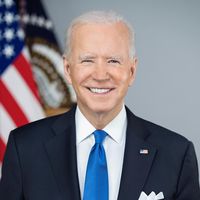The Refugee Dilemma: Trump’s Controversial Proposal and Its Ripple Effects
January 30, 2025, 11:06 pm

Location: United States, District of Columbia, Washington
Employees: 1001-5000
Total raised: $500K

Location: United States, District of Columbia, Washington
Employees: 10001+
Founded date: 1800
The political landscape surrounding immigration and refugee resettlement is shifting like sand beneath our feet. In the wake of Trump’s recent proposal to resettle Gaza’s population, a storm brews among Arab allies and U.S. religious communities. This idea, likened to trying to fit a square peg into a round hole, has left many questioning its feasibility and morality.
Trump’s suggestion to relocate 2.3 million Palestinians from Gaza is not just a political maneuver; it’s a gamble with human lives. Egypt and Jordan, already burdened with their own economic struggles, are wary. They fear that such a mass migration could destabilize their nations and the region. Jordan, home to over 2 million Palestinian refugees, stands firm against the idea. Its foreign minister’s response was clear: unwavering opposition. Egypt echoes this sentiment, warning that the proposal could ignite further conflict.
The stakes are high. Trump’s leverage over Jordan, a key U.S. ally, is tenuous. The country relies heavily on American aid, yet it is also a bulwark against regional instability. The U.S. has historically provided over $1.6 billion in aid to Jordan, primarily for security. However, the recent freeze on foreign assistance ordered by Trump raises questions about the future of this partnership.
Meanwhile, back in the U.S., even Trump’s loyal supporters are scratching their heads. The suggestion to “clean out” Gaza is met with skepticism. Some, like Senator Lindsey Graham, question the practicality of such a plan. The idea that all Palestinians could simply leave and find new homes is not just impractical; it’s a fantasy. The complexities of the Middle East cannot be solved with a single stroke of a pen.
As Trump doubles down on his support for Israel, the humanitarian implications of his policies become clearer. The U.S. has recently approved the release of heavy munitions to Israel, a move that raises alarms about civilian casualties in Gaza. The destruction there is palpable, yet the solution proposed feels more like a band-aid on a gaping wound.
In a parallel narrative, the immigration landscape in the U.S. is also shifting. Trump’s administration is prioritizing an immigration crackdown, reversing policies that once protected sensitive locations like churches from ICE raids. This has left religious leaders in Denver and beyond grappling with their moral obligations. Many churches, once sanctuaries for the vulnerable, now face the dilemma of whether to continue offering refuge.
The response from religious communities is mixed. Some leaders are resolute in their commitment to support immigrants, viewing it as a moral imperative. They draw from their faith, emphasizing compassion and care for the marginalized. Others, however, are cautious, weighing the legal ramifications of providing sanctuary against their ethical beliefs.
In Denver, churches are considering their roles in this evolving landscape. The First Baptist Church, which previously provided sanctuary to a Mexican mother facing deportation, is now contemplating its next steps. The congregation is divided, with some firmly against Trump’s immigration policies, while others advocate for a more measured approach.
The Jewish community, too, is wrestling with its identity in this context. Rabbis emphasize the importance of caring for the stranger, a principle deeply rooted in their faith. Yet, the complexities of legalities and community dynamics complicate their ability to act decisively.
The Episcopal Church and other Christian denominations are also navigating these turbulent waters. They are exploring ways to provide support without crossing legal boundaries. The tension between faith and law is palpable, as leaders seek to uphold their religious convictions while adhering to federal regulations.
The narrative is not just about policies; it’s about people. Families torn apart by deportation, children left without guardians, and communities fractured by fear. The stories of those affected by these policies are often overshadowed by political rhetoric. Yet, they are the heart of the matter.
As the U.S. grapples with its immigration policies, the implications of Trump’s proposals extend far beyond borders. They resonate within communities, affecting the lives of countless individuals. The refugee crisis is not just a distant issue; it’s a local one, impacting neighborhoods and families across the nation.
In conclusion, the refugee dilemma presents a complex tapestry of political maneuvering, humanitarian concerns, and moral obligations. Trump’s proposal to resettle Gaza’s population is fraught with challenges, both domestically and internationally. As religious leaders and communities respond to the shifting landscape, the call for compassion and understanding becomes ever more urgent. The path forward is uncertain, but one thing is clear: the human cost of these policies cannot be ignored. Compassion must guide our actions, even in the face of political turmoil.
Trump’s suggestion to relocate 2.3 million Palestinians from Gaza is not just a political maneuver; it’s a gamble with human lives. Egypt and Jordan, already burdened with their own economic struggles, are wary. They fear that such a mass migration could destabilize their nations and the region. Jordan, home to over 2 million Palestinian refugees, stands firm against the idea. Its foreign minister’s response was clear: unwavering opposition. Egypt echoes this sentiment, warning that the proposal could ignite further conflict.
The stakes are high. Trump’s leverage over Jordan, a key U.S. ally, is tenuous. The country relies heavily on American aid, yet it is also a bulwark against regional instability. The U.S. has historically provided over $1.6 billion in aid to Jordan, primarily for security. However, the recent freeze on foreign assistance ordered by Trump raises questions about the future of this partnership.
Meanwhile, back in the U.S., even Trump’s loyal supporters are scratching their heads. The suggestion to “clean out” Gaza is met with skepticism. Some, like Senator Lindsey Graham, question the practicality of such a plan. The idea that all Palestinians could simply leave and find new homes is not just impractical; it’s a fantasy. The complexities of the Middle East cannot be solved with a single stroke of a pen.
As Trump doubles down on his support for Israel, the humanitarian implications of his policies become clearer. The U.S. has recently approved the release of heavy munitions to Israel, a move that raises alarms about civilian casualties in Gaza. The destruction there is palpable, yet the solution proposed feels more like a band-aid on a gaping wound.
In a parallel narrative, the immigration landscape in the U.S. is also shifting. Trump’s administration is prioritizing an immigration crackdown, reversing policies that once protected sensitive locations like churches from ICE raids. This has left religious leaders in Denver and beyond grappling with their moral obligations. Many churches, once sanctuaries for the vulnerable, now face the dilemma of whether to continue offering refuge.
The response from religious communities is mixed. Some leaders are resolute in their commitment to support immigrants, viewing it as a moral imperative. They draw from their faith, emphasizing compassion and care for the marginalized. Others, however, are cautious, weighing the legal ramifications of providing sanctuary against their ethical beliefs.
In Denver, churches are considering their roles in this evolving landscape. The First Baptist Church, which previously provided sanctuary to a Mexican mother facing deportation, is now contemplating its next steps. The congregation is divided, with some firmly against Trump’s immigration policies, while others advocate for a more measured approach.
The Jewish community, too, is wrestling with its identity in this context. Rabbis emphasize the importance of caring for the stranger, a principle deeply rooted in their faith. Yet, the complexities of legalities and community dynamics complicate their ability to act decisively.
The Episcopal Church and other Christian denominations are also navigating these turbulent waters. They are exploring ways to provide support without crossing legal boundaries. The tension between faith and law is palpable, as leaders seek to uphold their religious convictions while adhering to federal regulations.
The narrative is not just about policies; it’s about people. Families torn apart by deportation, children left without guardians, and communities fractured by fear. The stories of those affected by these policies are often overshadowed by political rhetoric. Yet, they are the heart of the matter.
As the U.S. grapples with its immigration policies, the implications of Trump’s proposals extend far beyond borders. They resonate within communities, affecting the lives of countless individuals. The refugee crisis is not just a distant issue; it’s a local one, impacting neighborhoods and families across the nation.
In conclusion, the refugee dilemma presents a complex tapestry of political maneuvering, humanitarian concerns, and moral obligations. Trump’s proposal to resettle Gaza’s population is fraught with challenges, both domestically and internationally. As religious leaders and communities respond to the shifting landscape, the call for compassion and understanding becomes ever more urgent. The path forward is uncertain, but one thing is clear: the human cost of these policies cannot be ignored. Compassion must guide our actions, even in the face of political turmoil.
